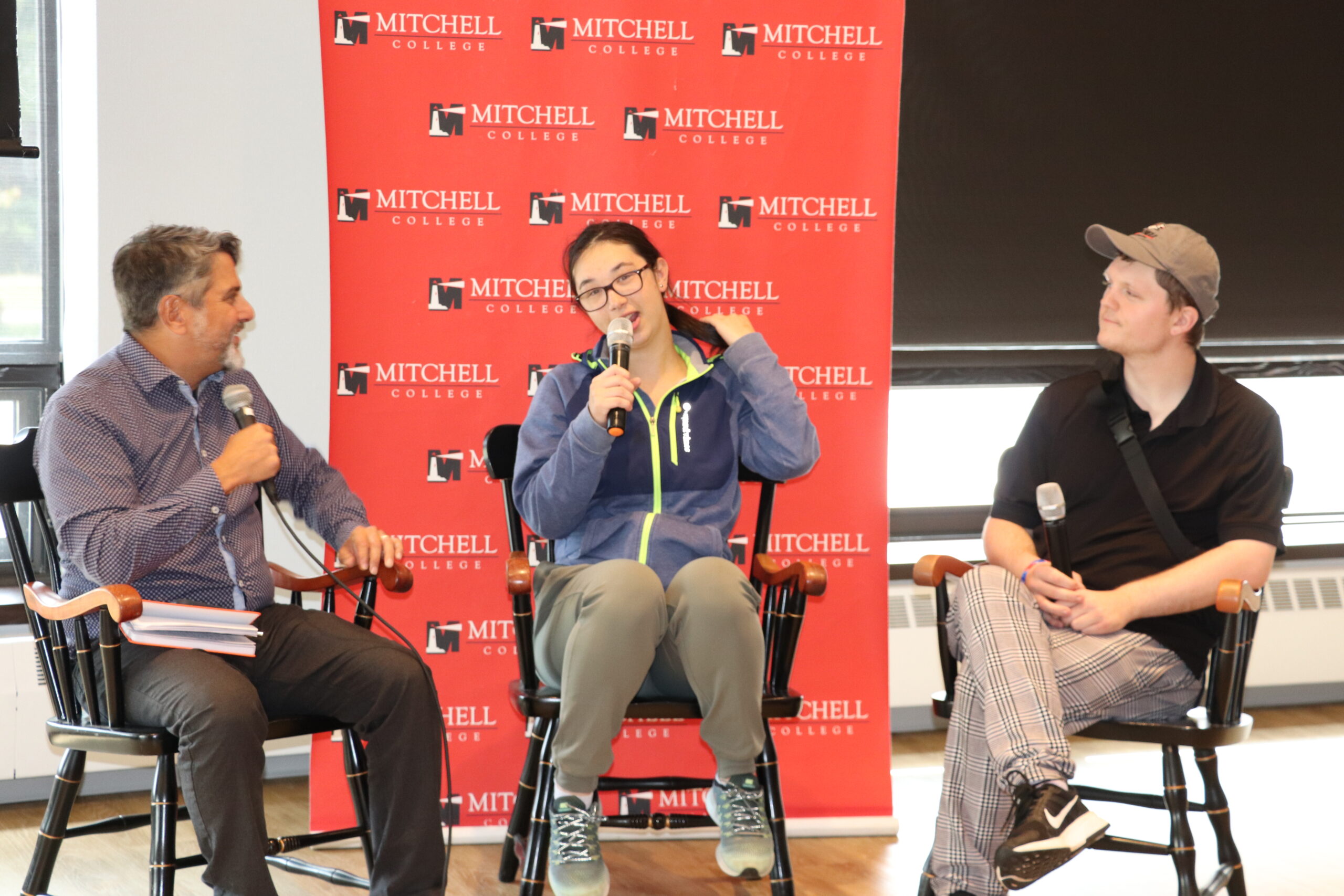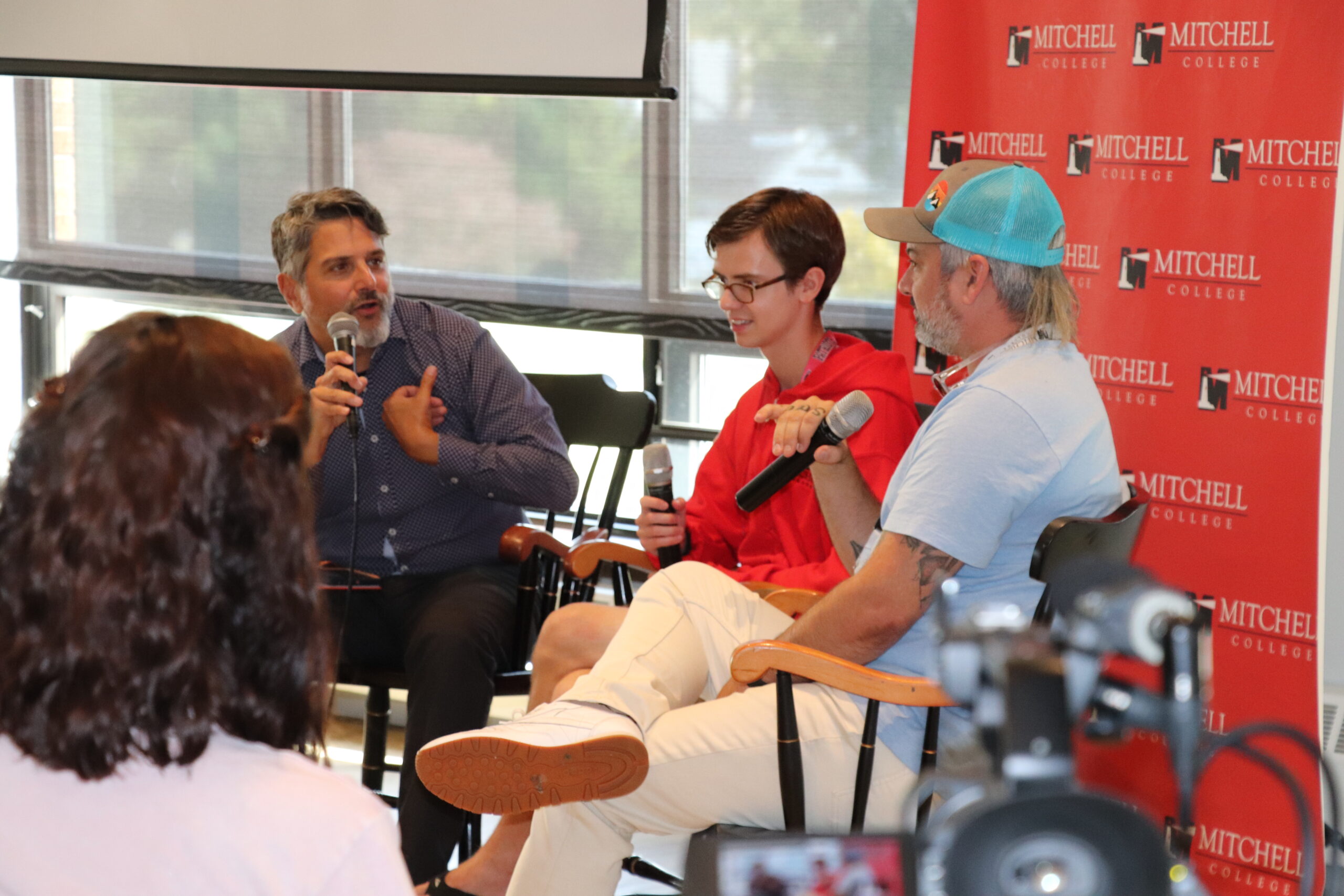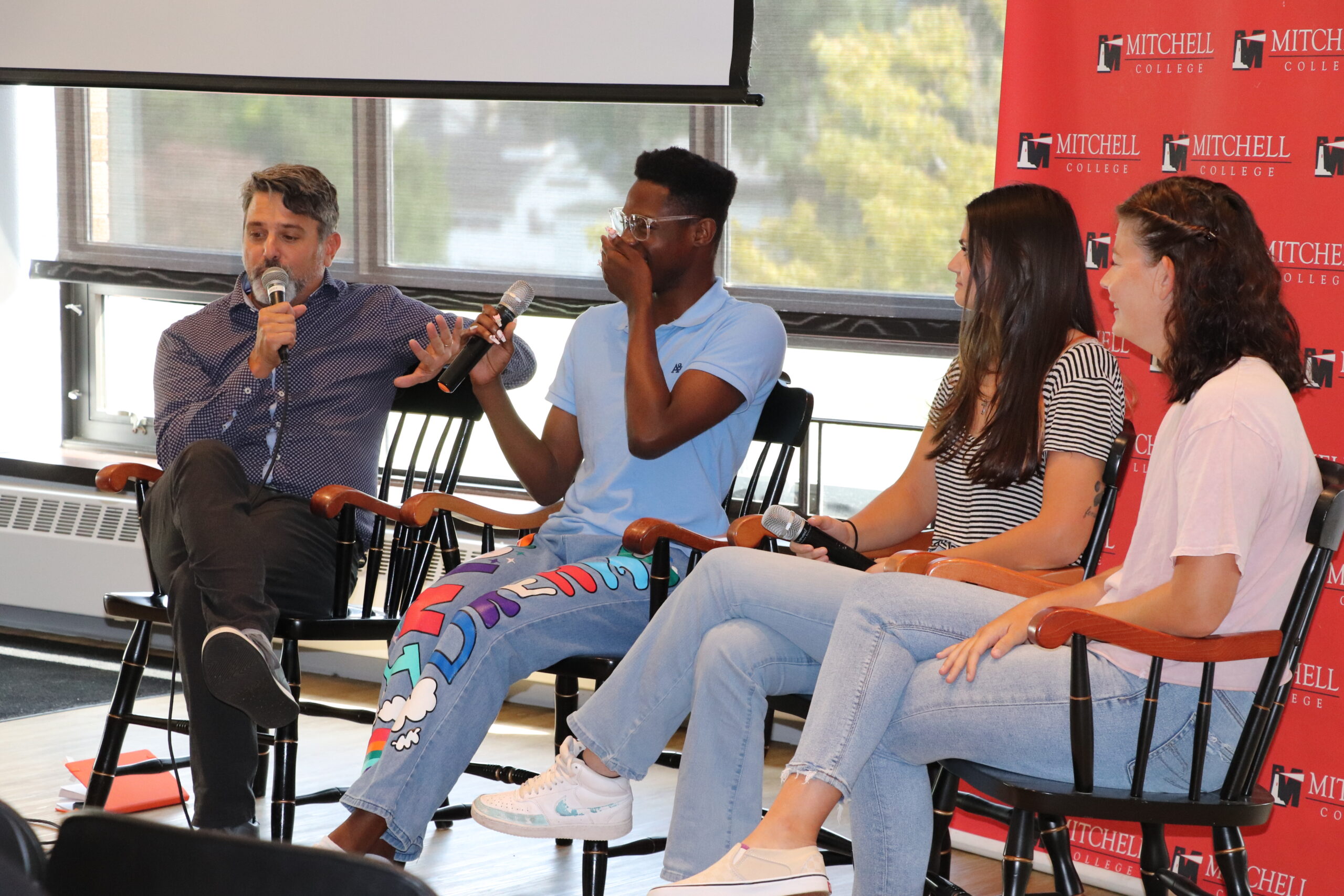When Julio Ricardo Varela walked onto the Mitchell College campus to record a podcast with students on neuro-inclusivity, belonging, and radical hospitality, he didn’t have to look far for inspiration.
“I was instantly struck by how strong and welcoming the community was. There was a sense of belonging and home that felt very special,” he said.
The award-winning journalist, MSNBC opinion columnist, and founder of one of the top U.S. Latino digital media sites in the world hosted his weekly Latino Rebels Radio podcast at Mitchell College, thanks to support from the Community Foundation of Eastern Connecticut.
Varela spent the day meeting with faculty and students and talked with the Mitchell community about the power of storytelling through podcasts and the craft of making them. During a morning discussion with communication classes, he explained that journalism and storytelling are a craft and a discipline.
“We have to be responsible” in telling stories “and be credible, honest, and truthful,” he said. He encouraged students to use their time at college to “tell stories in a supportive place.”
“Your stories matter. Everyone’s stories matter,” he added.
Why Tell Stories?
Varela explained that “We have ‘invisibilized’ so many voices for centuries that we have forgotten how our humanity connects us. In a country that continues to grow more and more socially isolated, we cannot give up, and [must] remind ourselves that storytelling from diverse voices will be what nourishes us.”
Latino Rebels Radio Podcast
Varela chose to record his weekly Latino Rebels Radio podcast at Mitchell College knowing the college’s reputation for inclusivity and specialized programs for all type of learners. He used a small panel format style and talked to two or three students at a time. Altogether seven Mitchell College students—Anna Kate Kochansky, Tommy Simmons, David Arbuckle, Will Dreier, Olivia DeCicco, Alyssa Hovey, and Joseph “JuJu” Volkerts—shared personal stories of the joys and challenges they experience attending a college committed to embracing and celebrating difference. The community was invited to watch as the podcast was taking place, and the room was full to capacity.
Varela spent the lunch hour before the recording getting to know the students, which Anna Kate Kochansky said was the most fun part of the experience.
“I enjoyed talking to Julio at lunch before the podcast. He gave me some tips, like ‘be yourself,’ and he also wrote down the topics he was going to talk about. It was super interesting to be part of the podcast recording,” Kochansky said.
David Arbuckle agrees.
“I had a lot of fun talking with Julio before and during the podcast. His relaxed and understanding attitude helped ease any stress. Julio enabled the interviewees and audience to be more authentically engaged by framing neurodiversity through a realistic lens and incorporated humor and praise organically.”
When asked about the rewards and challenges of interviewing, Varela said, “I am inherently curious, so I enjoy asking people questions and trying to make them feel comfortable to share their stories with sincerity and compassion.” He added that it is all about “human connections and collegiality.”
Student Tommy Simmons found the biggest challenge to be in front of a live audience.
“The most challenging part of the experience was the room being as full as it was. I loved it, but at the same time it was a little hard because I know almost everyone on campus—faculty, staff, and students—but not everyone knows my story,” he said.
His favorite part of the experience was not only sharing his story but learning the stories of the other participants. “I think everyone brought something fantastic to the conversation, and I hope this podcast is something that will start the conversation on neurodiversity,” Simmons said.
Alyssa Hovey said, “We were going into the podcast not knowing the questions. When I was first asked a question, I had to think of an answer on the spot, but over time I was able to come up with answers more easily. Julio told us to think of the podcast as a friendly conversation at the dinner table and to look at him and the other students on the panel [and not the audience] the whole time. If he didn’t say that I would be more nervous than I was. This was a great opportunity to work on my public speaking skills, and I am grateful that I could participate.”
Will Dreier spoke openly about his autism.
“The most challenging part of the experience, at first, was knowing how to prepare for the podcast,” Dreier said. “But it was fun getting to express my ideas, discuss autism representation in media, and, of course, giving my most iconic speech about autism being my superpower. Before the podcast, Julio talked to us about seeing yourself in the media and putting yourself out there. This gave me enough confidence and knowledge of what I truly wanted to say. And I loved hearing about how moved everyone was by my speech!”
Varela said a highlight of his experience at Mitchell College was talking with and learning more about members of the Mitchell College community, “especially the student guests, who were all fabulous.”
Hear the podcast: https://www.latinorebels.com/2023/09/30/neuroinclusivitybelongingradicalhospitality/



